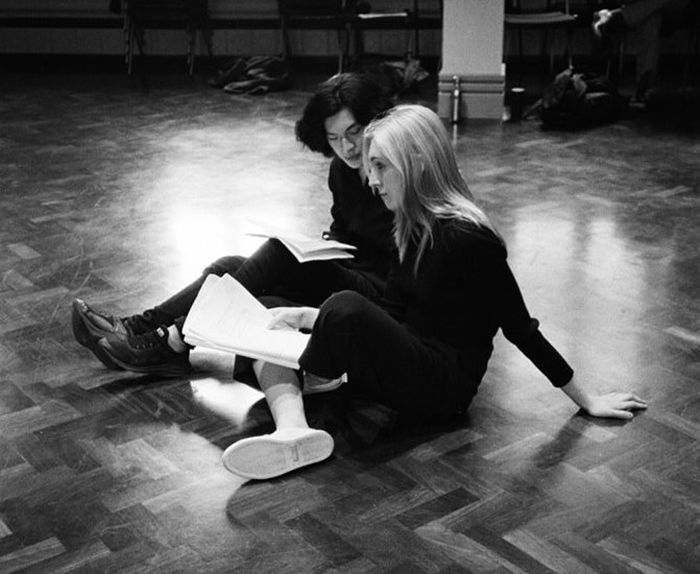Why cutting funding for the arts is not just an economic matter
Theatre Editor Lewis Andrews explores the reasoning behind a decade of cuts to local arts funding

Culture secretary Nadine Dorris announced just over a week ago that, as part of the ‘levelling-up’ scheme, the Tories will cut more than £70m in arts funding for the capital and distribute it more widely across the country. Whilst a “huge historical imbalance” in funds for different parts of the nation is cause for deep concern, it is telling that the government must generate the money through cuts to our cultural institutions rather than additional investment. Sadiq Khan also emphasised in his response to the decision that it will “not only deliver a devastating blow to our city’s creative sector, but also damage the UK’s recovery from this pandemic… London has some of the most deprived communities in the country. Cutting arts funding for these communities is the opposite of levelling up.”
“The Conservatives have overseen a halving of local spending on the arts”
Whilst the Tories save themselves money in their strategy, i.e. being able to advertise an achievement but only whilst raising the money through cuts elsewhere, a more cynical eye may also suggest that the policy disseminates the funds into insignificance. Local spending on the arts should receive widespread funding injections, not made to share what is already meagre. If one were to accuse me of living in dreamland, where tubs of money are given to all small art clubs, it is not as if things were always as underfunded as now. Since the election in 2010, in what is a somewhat disturbing revelation, the Conservatives have overseen a halving of local spending on the arts. It recalls former education secretary Gavin Williams’ decision to begin “one of the biggest attacks on arts and entertainment in English universities in living memory”, by cutting funds for creative subjects and focusing on other priorities (Williams also enjoyed the offer of a knighthood this week, after only being fired twice). Who too could forget the 2019 advertisement campaign encouraging artists to retrain for jobs ‘in cyber’?
“Art will be maintained only for the group who can afford to generate its production themselves”
Whilst in a crisis, it may seem wise to focus on employment that will stimulate economic recovery. But the stigma of art as a luxury cannot be deemed accurate when, back in February 2020, official UK government statistics revealed that the UK’s artistic industries were growing over five times faster than the national economy. And yet Dominic Cummings, according to multiple sources, dismissively cried that “the f***ing ballerinas can get to the back of the queue”. It is from here that I will leave the economics aside, to ask why this continued attack occurs from an ideological standpoint? Permit me to wildly speculate…
Without significant support, art will be maintained only for the group who can afford to generate its production themselves. Conserving is predicated on already understanding the world, reconfirming and protecting its view. It follows that art which would confuse these borders, scatter normalcy and resist habitual tools of interpretation, is a matter of punching up at their authority. The discovery that Alexander de Pfeffel Johnson, or ‘Boris’ as he is known, has been writing a Shakespeare biography is not so much a love for art, but an insistence that the best theatre has already been created. It is why the old masters have to be re-sharpened, the possibility of an energising spark recaptured and made anew.
I, no doubt, am a victim of hyperbole; the problems with money in the wider artistic industry are not few, and it is far from some tranquil paradise. I will not break into a Percy Shelley-esque insistence that poets are the “legislators of the world”, but I will insist on the passionate need for active communication, creativity and questioning things as they are. This is what local funding does in communities. It cultivates an understanding of why every voice should matter in a democracy, and why a rich culture of artistic expression is essential to this process. Given too that it helps uncover the absurdity and cruelty of these decisions, perhaps it is no wonder its funding is being cut.
 Comment / Cambridge students are too opinionated 21 April 2025
Comment / Cambridge students are too opinionated 21 April 2025 Comment / Does the AI revolution render coursework obsolete?23 April 2025
Comment / Does the AI revolution render coursework obsolete?23 April 2025 Comment / Cambridge’s tourism risks commodifying students18 April 2025
Comment / Cambridge’s tourism risks commodifying students18 April 2025 News / News in brief: campaigning and drinking20 April 2025
News / News in brief: campaigning and drinking20 April 2025 Interviews / Meet the Chaplain who’s working to make Cambridge a university of sanctuary for refugees20 April 2025
Interviews / Meet the Chaplain who’s working to make Cambridge a university of sanctuary for refugees20 April 2025







